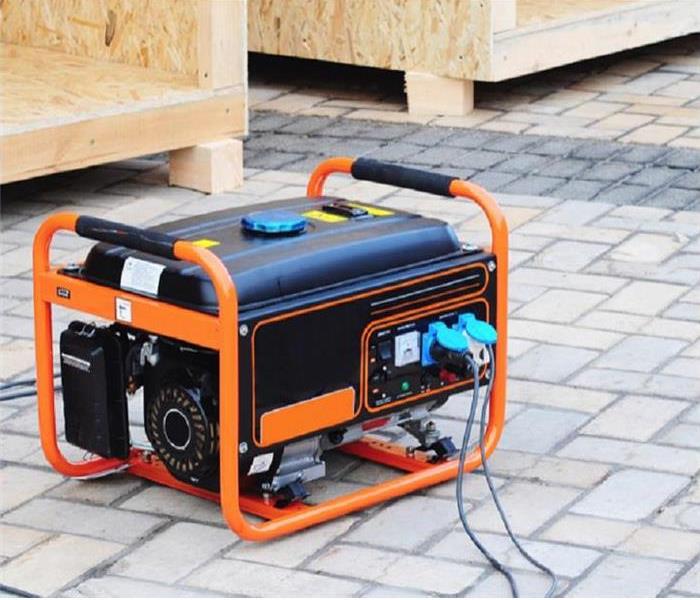Using a Portable Generator Safely
2/26/2019 (Permalink)
We all have been there when the power in your home or business decides to shut off caused by bad weather or a community outage. The wind and ice as of late have caused power outages for more than a few local communities. The last thing anyone wants to worry about during cold weather is keeping your heat on. Portable heaters can help, but how will you run them with no power? Many businesses and residential properties have the convenience of a backup generator located nearby. With operation of a generator do you know the first things to keep in mind to staying safe while using one?
If you have a generator on hand for power outages during severe weather, follow the safety tips below from the American Red Cross:
- Never use a generator, grill, camp stove, or other gasoline, propane, natural gas, or charcoal-burning devices inside a home, garage, basement, crawl space, or any partially enclosed area.
- To avoid electrocution, keep the generator dry and do not use in rain or wet conditions. Do not touch the generator with wet hands.
- Opening doors and windows or using fans will not prevent carbon monoxide (CO) buildup in the home. Although CO can’t be seen or smelled, it can rapidly lead to full incapacitation and death. Even if you cannot smell exhaust fumes, you may still be exposed to CO. If you start to feel sick, dizzy, or weak while using a generator, get to fresh air immediately.
- Install CO alarms in central locations on every level of your home or property and outside sleeping areas to provide early warning of accumulating carbon monoxide.
Even in bad weather, the best place for your generator is outside. If you must keep it protected to keep it running and be safe then a garage is a good place, but pay attention to CO levels if your garage is attached to your house. Only use your generator if you absolutely have to and call for help if you need it.


 24/7 Emergency Service
24/7 Emergency Service
